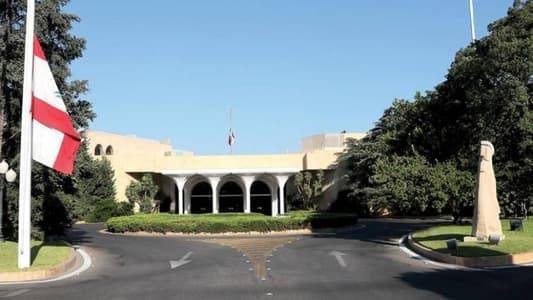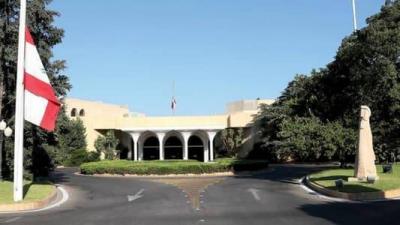Political factions within the country are exploiting international distractions, ranging from Ukraine to Tehran and northern Syria, to obstruct the presidential elections while waiting for a favorable moment that serves their aspirations, particularly the "Resistance" axis, which has been unable to resolve its internal issues or agree on a single presidential candidate. In contrast, the "sovereign opposition" remains steadfast in backing its candidate, regardless of their belief in the possibility of achieving this.
This "exploitation" stems from the understanding that the "stick" from external forces has not yet been brandished against those obstructing the election of a new president. However, while foreign countries are not working on the presidential file at a breakneck speed, they are handling it through negotiations based on the principles of avoiding confrontation and securing everyone's interests. France is leading this international effort on the presidential file, coordinating communications among involved parties inside and outside the country, particularly along the Saudi-Iranian-American lines.
Diplomatic sources knowledgeable about this process believe that the stances of key political entities in Lebanon indicate a wait for a decisive "phone call" from abroad. Until the final word comes from external agencies, and based on the results of ongoing dialogues among the concerned states, domestic positions will remain merely tactical maneuvers for the presidential battle, as a decision within the country is increasingly unlikely.
According to information about French-American-Iranian-Saudi communications, these sources, which previously participated in presidential negotiations, clarify that no one knows how long these negotiations will take to yield results. They are currently based on core principles: the vacancy should not be prolonged until the country collapses, and that the interests of these states converge on preventing chaos in Lebanon, as a vacuum might create both constitutional and sectarian chaos, as well as social and security turmoil. Hence, the president is not a matter of external importance for his powers or to "fetch the water from the well," but rather as a factor of stability or prevention of chaos. None of these countries benefits from a collapse of Lebanon as occurred in 1982, which means that the boundaries for completing the presidential election end at the point of losing control over the country.
Nevertheless, this does not imply that the outside world is able to produce a president instantly, independent of the intertwined internal positions connected to regional affiliations. These negotiations, led by France after initiating dialogue with Iran and Hezbollah, are being conducted in a way that satisfies both their allies and Iran, despite existing complications regarding Iran's situation, including internal protests and its support for Russia in the war against Ukraine. Therefore, negotiations with Iran are more complex and require time for resolution.
Thus, these sources believe that there will be no president in the foreseeable future, but the vacuum will not last as long as it did between 2014 and 2016. Iran remains the central obstacle in these negotiations, not Saudi Arabia, with which France has previously reached a solution to aid Lebanon through humanitarian assistance. Saudi Arabia will not oppose France and its allies. However, in the negotiations, each country has demands, and waiting will be the theme of this phase until a presidential point of convergence is reached.
Simultaneously, the door for "relief" on the presidential front remains closed internally, as Hezbollah does not want a president who questions its weaponry. The positions of the president carry a different weight than any political figure's, and such a president would be rejected by Hezbollah, whose arrival would signify instability, potentially leading to civil war. Conversely, the sovereign opposition continues to insist on a president, such as its candidate, MP Michel Moawad, whom Hezbollah deems a challenge and confrontation.
Consequently, there is difficulty in finding a president acceptable to both Hezbollah and the opposing team while simultaneously being opposed by both Iran and Saudi Arabia. Due to this division within the country, external negotiations will not be easy or quick.
Regarding potential candidates, it appears that all roads currently lead to one name, at least at this political moment, as the search is for a president who is not necessarily desired by all forces but someone whom everyone does not oppose. The only candidate fitting this description seems to be Army Commander General Joseph Aoun. Thus far, there have been no serious objections against him from any faction, and he has been engaging wisely with Hezbollah for years without confrontations. There is no issue between him and Saudi Arabia; the army has effectively handled drug trafficking issues, and despite lacking friendship with Saudi Arabia, there are also no problems.
Therefore, when considering the proposed names, General Aoun emerges as the presidential candidate. The head of the Free Patriotic Movement, MP Gebran Bassil, and the head of the Marada Movement, Sleiman Frangieh, are rejected by half the Lebanese public, while the third candidate is not a sure prospect according to Hezbollah, and the sovereign candidate's rise is blocked by Hezbollah. This Lebanese division compels external actors to seek a "bridge" president, thus increasing Army Commander Aoun's chances. However, this compromise has not yet matured, and external factors may alter the components of this "cooking" before it is ready, indicating no imminent presidential surprise.




